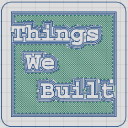This week, we’ve been learning about the SOLID principles of software. When I say we, I mean I (Mark) have been learning, and Rob (the professional computerman on our team) has been suggesting videos and other resources, and helping clarify bits I’ve not understood. My take on the SOLID principles, in the context of a Pi Wars robot’s software is:
S: Single Responsibility Principle (SRP) Each component of the code (function, class or whatever) should have one job.
Mastering Robot Software Structure for Beginners Navigating the intricate world of robot programming can be a daunting journey, especially when deciding how to structure your code for feedback, control, and update rates. Here, we dive into the essentials, blending expert advice with practical experiences to guide beginners through the complexities of robot software architecture.
Understanding Update Rates and Task Scheduling Update Rate Considerations: Sensors: Typical sensors update at 10-30Hz, which translates to data every 33-100ms.
Blog Post: Revolutionizing Pi Noon with OSoD’s Autonomous Strategy The Pi Noon challenge at Pi Wars has always been a thrilling test of precision and strategy, where robots face off in a duel of balloon-popping prowess. This year, Team Cyberwar is taking an unprecedented approach with their robot, Overwhelming Surplus of Diggity (OSoD), by entering the challenge autonomously—a pioneering move only previously attempted by Piradigm.
The Autonomous Edge: OSoD’s strategy hinges on autonomy, leveraging advanced technology to outmaneuver opponents.
Navigating the Spectrum - Sensor Testing Insights Introduction In our previous blog post, Navigating the Spectrum, we embarked on a journey to select the most suitable sensors for our robotic endeavours, particularly for the challenges of Pi Wars. Building on that foundation, we’ve now put these sensors to the test, literally. The goal was simple yet crucial: verify if the real-world performance of our chosen sensors aligns with their datasheet specifications.
Navigating the Spectrum: Sensor Selection for Pi Wars’ Diverse Arenas As we gear up for the multifaceted challenges of Pi Wars, our focus shifts to the pivotal role of sensor selection for our robot, the Overwhelming Surplus of Diggity (OSoD). Let’s delve into how we plan to harness these sensors to ensure our robot can ascertain its position within the varied arenas of the competition.
Sensor Requirements for Optimal Navigation The arenas present unique navigational challenges, from the tight 0.
Unraveling the Eco-Disaster Challenge: Insights from Team OSoD Welcome to our latest technical blog post, where we delve into the intricate strategies and technological advancements of our Pi Wars robot, the Overwhelming Surplus of Diggity (OSoD). Our team has been hard at work strategizing for the Eco-Disaster challenge, a task that involves sorting contaminated barrels within a specific time frame. Here, we’ll explore our approaches, sensor integration, and estimated run times for the different options being evaluated.
In the competitive world of Pi Wars, where ingenuity meets the rigor of rulebooks, there comes an idea that could change the game, albeit with a mischievous wink. A team with a robot named Overwhelming Surplus of Diggity (OSoD) has stumbled upon a clever, if not slightly roguish, interpretation of the Lava Palava challenge rules.
A Bold Strategy The challenge typically tests a robot’s ability to navigate a treacherous path without succumbing to the ’lava’.
Preparing for Pi Wars 2024: Challenges and Innovations Great news, everyone! We’re thrilled to announce that we’ve successfully secured a spot in the Pi Wars 2024 competition. Our journey to Pi Wars continues, and we’re eager to share more insights into our robot’s development and our strategies for conquering the challenges ahead.
Eco Disaster: Sorting Sustainability Our approach to the Eco Disaster challenge involves collecting all barrels into two sorted barrel storage cartridges, using a specially designed collection mechanism.
Our Pi Wars 2024 Application: A Glimpse into Team Cyberwar’s Ambitious Plans The excitement is building, and the gears of innovation are turning as Team Cyberwar embarks on its journey to participate in Pi Wars 2024. For those curious minds eager to peek behind the curtain of our (hopefully) successful Pi Wars application, or for those simply intrigued by our ambitious plans, this post provides an exclusive look at what we’ve submitted.
Preparing for Pi Wars 2024: Building the Overwhelming Surplus of Diggity Pi Wars 2024 has been announced, and we’re gearing up for the challenges ahead. This time, the competition revisits the Disaster theme from 2020, and we’re excited to take on the challenges with our latest creation, the Overwhelming Surplus of Diggity (OSoD). In this post, we’ll dive into our journey so far, the design choices we’ve made, and how our past experiences have shaped our approach.
